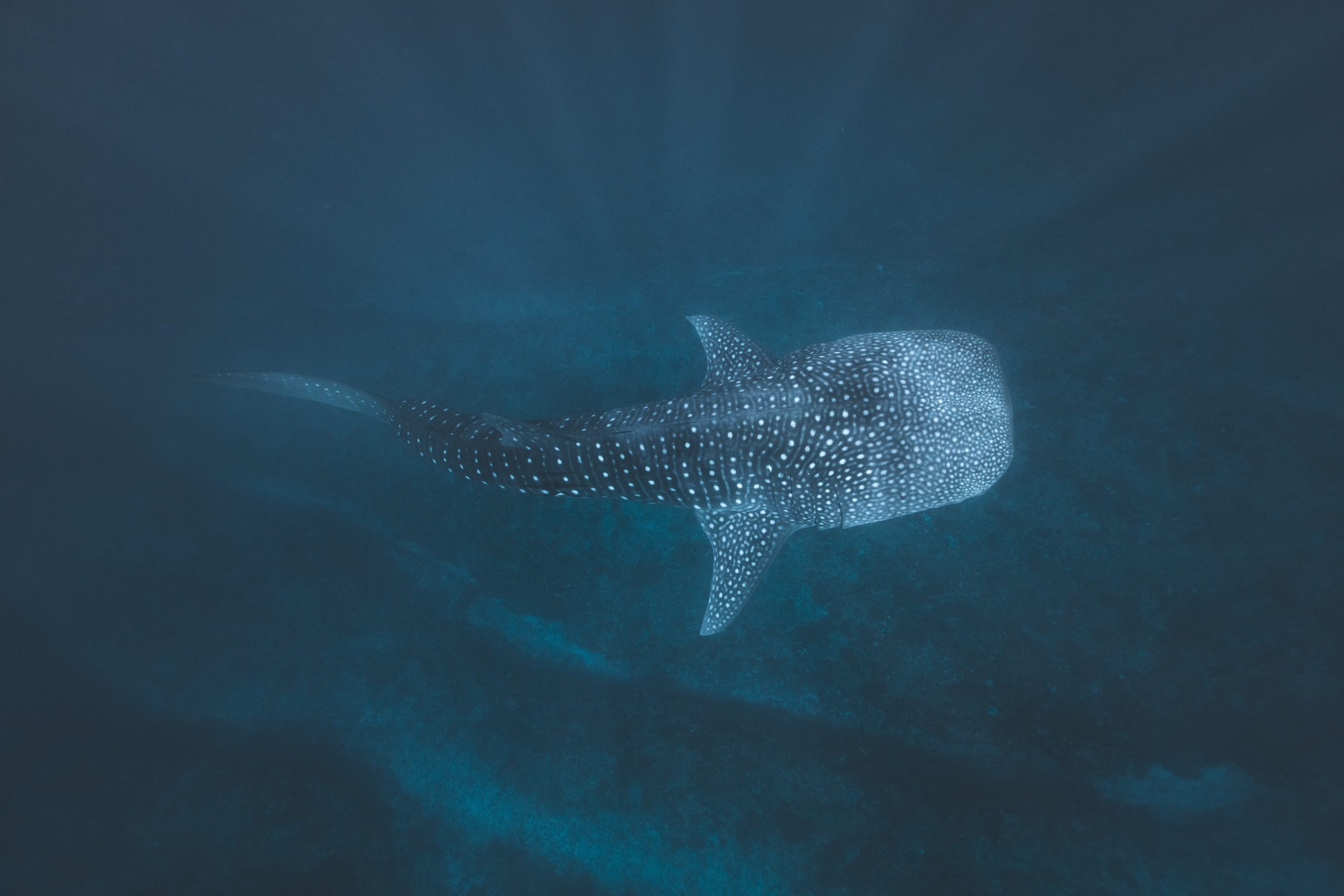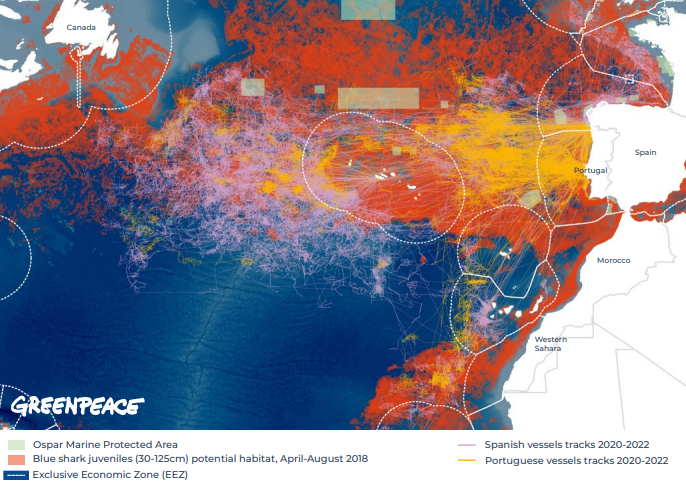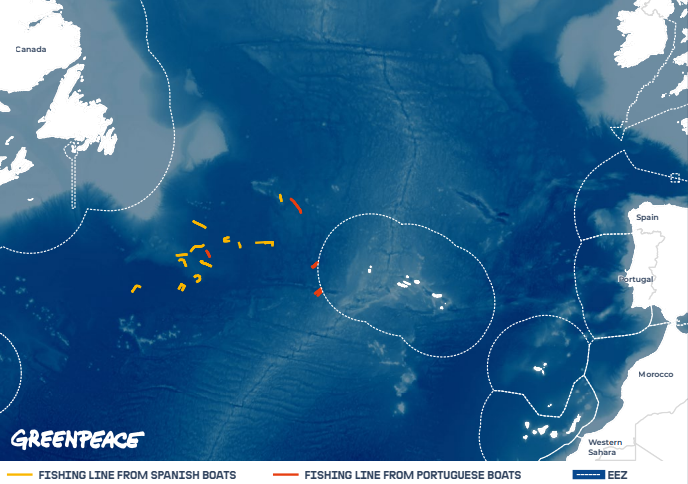
Hooked on sharks
The EU fishing fleets fuelling the global shark trade.
The Mapping Hub has contributed to the analysis of the potential feeding habitat of blue shark juveniles and the creation of the static map on page 14 of the report and to the analysis of fishing lines distribution and the creation of static map on page 26 on the report.


In this report, Greenpeace charts the evolution of the North Atlantic shark fishery, tracking the distressing downward trajectory of shark populations and the consequent impacts on ocean health.
Main findings
- EU distant water fleets from Portugal and Spain are deliberately targeting juvenile (baby) shark breeding grounds.
- The EU, along with the Spanish and Portuguese governments, have both consistently resisted attempts to improve the management of this fishery because of lobbying by their respective fishing industries, despite claiming to be global ocean champions on the world stage.
- On an average fishing day in the North Atlantic, there are a shocking 1200kms of fishing cables in the water, with an estimated 15000-28000 hooks.
- This fishery is the perfect showcase of how regional fisheries management organisations (RFMOs) are failing the oceans. Here, ICCAT (International Commission for the Conservation of Atlantic Tunas) has consistently failed to protect sharks and our oceans from the multiple threats they are facing.
- The solution is a Global Ocean Treaty to fix the broken system of global ocean management. A treaty must be finalised at the UN in August of this year, or it will be impossible to protect 30% of our planet’s oceans by 2030.
